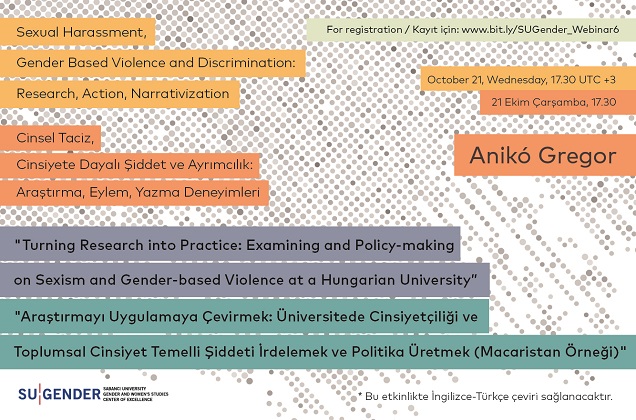16/10/2020
SU Gender is organizing an international webinar series on sexual harassment, gender based violence, diversity and inclusion within and outside the university.

05/10/2020
Atakan Koçanalı, a Sabanci University Integrated Manufacturing Technologies Research and Application Center (SU IMC) Researcher and student of the Materials Science and Nano Engineering Master’s Program, under the supervision of Dr. Burcu Saner Okan, was awarded second prize in the category of the postgraduate poster competition held at the SPE ACCE 2020 Conference.
30/09/2020
Sabancı University Mechatronics Engineering PhD 2020 alumni Hakan Osman Çaldağ’s paper has been regarded as noteworthy by the editors of the prestigious fluid mechanics journal Physics of Fluids and promoted as Editor's Pick in the September 2020 issue.
28/09/2020
Turkey's leading nanotechnology centers SUNUM and ITUnano signed a bilateral cooperation protocol. The protocol signed between Sabancı University Nanotechnology Research and Application Center (SUNUM) and Istanbul Technical University Nanotechnology Application and Research Center (ITUnano) aims to develop advanced technologies that will generate value for the industry through joint infrastructure use and experience sharing between the centers.
28/09/2020
TÜBİTAK has launched two separate calls through ARDEB and TEYDEB for the "COVID-19 Response and Resilience Program" initiated by Development Agencies under the coordination of Ministry of Industry and Technology General Directorate of Development Agencies for projects developed by universities and the private sector that have R&D potential.